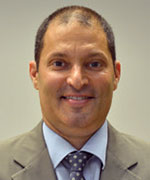Would You Like a Cup of Tea?
Reflections
BY JOSH GLAZEROFF
The hospitality of other cultures is something we Foreign Service types come to appreciate over the years. In my time overseas, I have often noted how open others are to us, newcomers to their country and visitors to their homes or places of work.
I can just about guarantee that I will be offered tea or coffee when visiting any other foreign ministry in the world; I certainly wouldn’t predict the same at Main State. There is a lesson there for all of us as we engage in diplomacy and aim to access others’ cultures.
In my five years in India, I saw a spirit of welcoming in every scenario in which I was someone’s guest. Whether invited for dinner, visiting a store or coming for an official meeting, I was offered a connection, in many cases, a physical one—a drink, a bowl of nuts or some cookies.
The gestures sound formulaic, but are meaningful. Human beings are social creatures, and we like those times when someone reaches out to touch us, even if not by hand. The idea that this other person wants to engage us, symbolized in the food or drink, opens us up to dialogue and building a relationship.
My professional role could have gotten in the way of these connections, but I think the cultural norms were too strong. As a consular officer with oversight of the visa process, I conducted site visits to quite a few people’s homes to verify the information on their applications.
On many occasions, I was in a position of actively questioning someone’s honesty in their own living room. Yet on no occasion did they fail to ask, “Would you like some tea?” No matter how difficult the line of inquiry I brought to their home and no matter how serious the potential impact on their immigration to the United States and the future of their family, I was a guest and someone with whom to connect.
Was I teaching them the importance of doing the right thing, or were they teaching me? It is a life lesson I continue to ponder.
The best illustration of this willingness to help came on a site visit to a house where we suspected a fake “son” was living. It was a very rainy day, and we had done quite a bit of driving to a more rural area before getting out of the vehicle. We headed inside, were offered the obligatory drinks and commenced our investigation.
Interviewing the family and reviewing their documentation, we got a clear indication they had fabricated a relationship solely for immigration purposes. Confident in our findings, we confirmed for the family that they were now ineligible for visas and would not be traveling to the United States. We packed up our things and headed back out into the rain with big smiles for our excellent work.
So, what happened next? Of course, we got stuck in the mud. The skies had opened up. My colleagues and I were in our suits. Even with our best efforts, there was no way to push the vehicle free. Trapped right outside our interviewee’s home!
India came to the rescue.
Those very same family members we had accused of fraud five minutes earlier came running out to the vehicle and, working together, we got it loose. Free again to drive away, we waved at those who had gone against our regulations and balanced that against all that they had just done to help us. Was I teaching them the importance of doing the right thing, or were they teaching me? It is a life lesson I continue to ponder.
Perhaps we should reconsider how we “task” one another via email without making a real connection. If we did try to get to know others better, if we did buy that cup of coffee, if we understood others’ sincere policy differences, we might just come up with ways for us all to do our jobs better.


